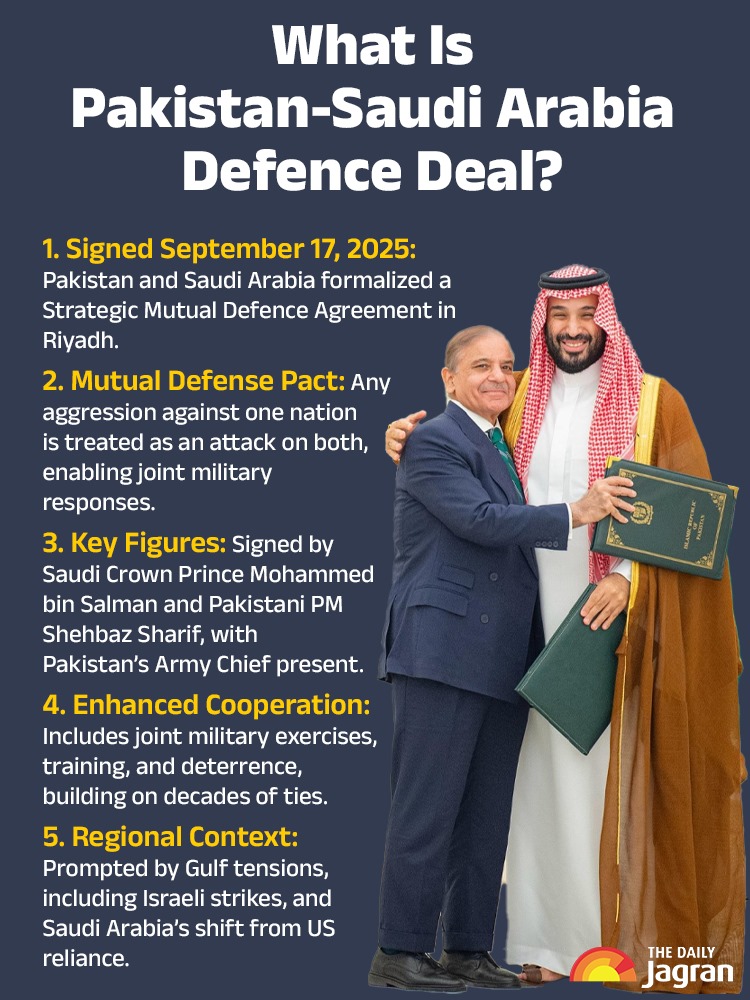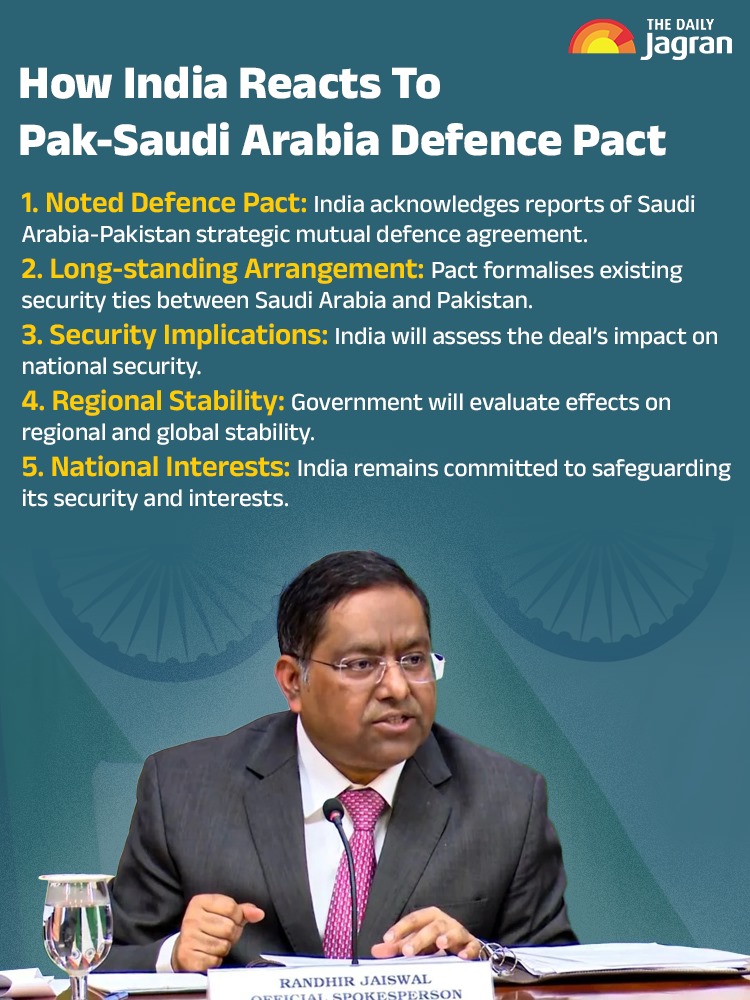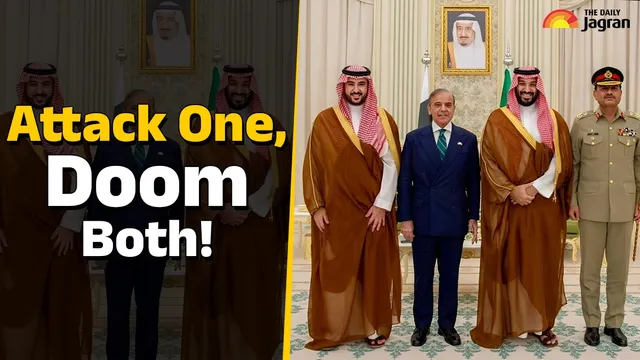- By Ajeet Kumar
- Thu, 18 Sep 2025 11:43 AM (IST)
- Source:JND
In a major geopolitical development, Pakistan and Saudi Arabia signed a 'Strategic Mutual Defence Agreement' in Riyadh on Wednesday. Under the pact, the two countries have formally agreed that any attack on one will be treated as an aggression against both. The agreement was formalised when Pakistan’s Prime Minister Shehbaz Sharif, who is on a state visit to Saudi Arabia, met Crown Prince Mohammed bin Salman in the national capital. The sealing of the pact came over four months after a four-day military conflict between India and Pakistan.
What is Pakistan-Saudi Arabia defence deal?
Saudi Arabia and nuclear-armed Pakistan signed a formal mutual defence pact. The "Strategic Mutual Defence Agreement", pledged that any aggression against either nation would be treated as an attack on both.
“Act of Aggression” in international law (UN Charter, customary law), is the use of armed force by a state against the sovereignty, territorial integrity, or political independence of another state.
In terms of content, the documents explicitly state the mutual defence clause. However, there are no details on how the pact will be implemented. Moreover, what triggers joint response, what military assistance, logistics, and nuclear aspects remain unclear from public sources.

How India responded to Pakistan-Saudi Arabia defence deal
India said it will study the implications of the move for its national security as well as for regional and global stability. In a carefully crafted response, External Affairs Ministry spokesperson Randhir Jaiswal said New Delhi remains committed to protecting India's national interests and ensuring "comprehensive national security in all domains".
"The government was aware that this development, which formalises a long-standing arrangement between the two countries, had been under consideration," he said. Jaiswal said India will "study the implications of this development for our national security as well as for regional and global stability."
"The government remains committed to protecting India's national interests and ensuring comprehensive national security in all domains," he said. Jaiswal was responding to a media query on the issue.

How Saudi Arabian officials react to the deal
Speaking to news agency Reuters, ahe senior Saudi official, who spoke on condition of anonymity, acknowledged the need to balance relations with Pakistan's rival, India, also a nuclear power. "Our relationship with India is more robust than it has ever been. We will continue to grow this relationship and seek to contribute to regional peace in whichever way we can." Asked whether Pakistan would be obliged to provide Saudi Arabia with a nuclear umbrella under the pact, the official said: "This is a comprehensive defensive agreement that encompasses all military means."
Why is it concerning for India?
Strategic and security concerns: The pact gives Pakistan a powerful ally’s formal military guarantee. This could embolden Islamabad in its regional posture, including towards India.
Kashmir Factor: Pakistan may try to leverage Saudi Arabia’s political weight in raising Kashmir-related issues more forcefully at international forums.
Two-front possibility: India already considers China–Pakistan alignment a “two-front” challenge. If Saudi Arabia were to give Pakistan more advanced defence hardware or financial support, that would indirectly strengthen Pakistan’s military capacity against India.
(With inputs from agency)

